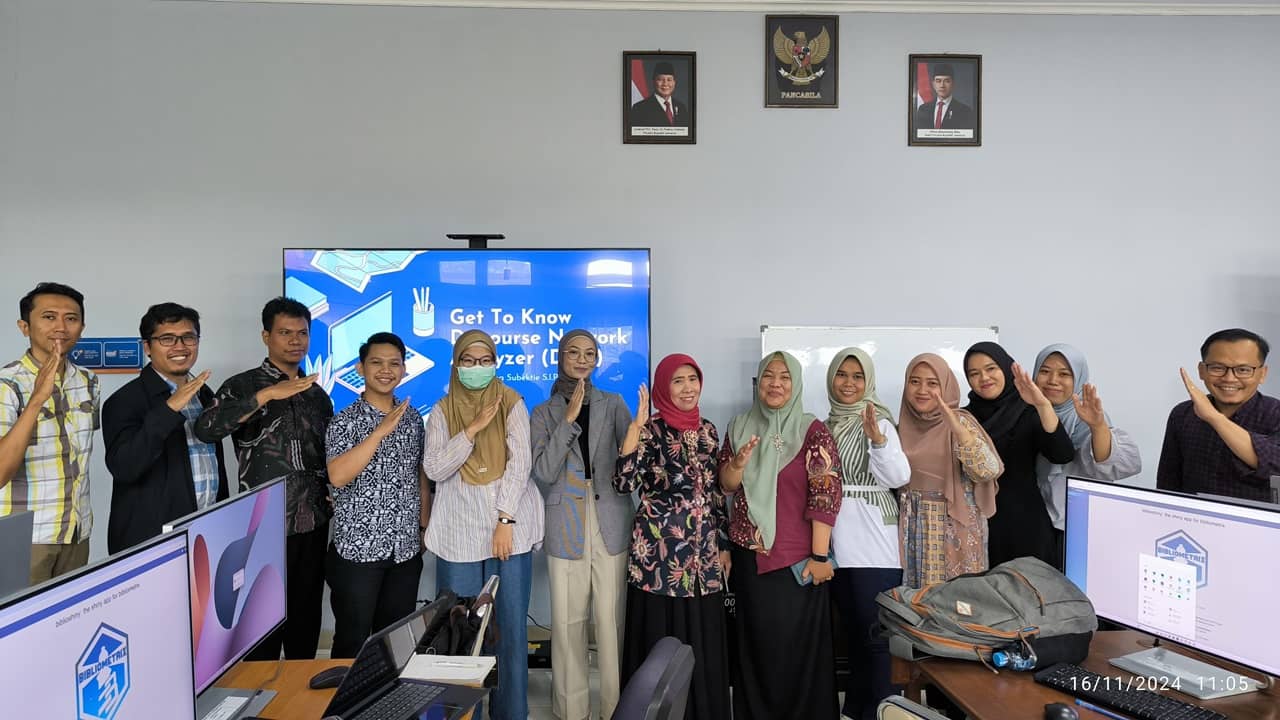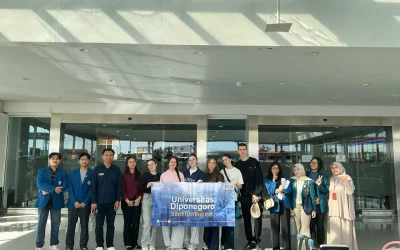Semarang, November 16, 2024 – The Public Policy Data Analysis Laboratory of the Faculty of Social and Political Sciences at Diponegoro University held a training session on “Discourse Network Analysis (DNA) Software” for students of the Doctoral Program in Public Administration.
Discourse Network Analysis (DNA) is a software tool designed to analyze data in the form of networks based on discourse. It integrates content analysis with social network analysis to help researchers understand how ideas, arguments, actors, or concepts are interconnected within specific contexts, such as public policy, political debates, or social issues. This software is particularly useful for research in sociology, political science, communication, and other fields that require complex analysis of interactions between ideas, concepts, and actors within texts.
The training aimed to introduce students to a sophisticated yet valuable method for analyzing public policy and other social science research topics. The session was led by Rosalina Woro Subekty, S.IP., MPA, a lecturer in the Department of Public Administration, who guided participants through the foundational concepts and practical applications of the DNA software.
The training was attended by doctoral students of the Public Administration Program, who were eager to learn this new analytical technique. During the session, participants were taught how to use the DNA software to map interactions between ideas and actors in various texts, supporting their research with a more in-depth and systematic approach.
Training Benefits
Through this training, students gained insights into how to:
- Use DNA software to identify relationships between ideas and actors in specific discourses.
- Connect content analysis and social network concepts to produce more comprehensive interpretations.
- Apply this method in public policy research, particularly in mapping actor and argument networks within policy issues.
Participants expressed their appreciation for the training, as it provided new perspectives and technical skills to support their research. “DNA software offers an innovative way to explore interaction patterns in policy discourses, which is highly beneficial for developing sharper analyses,” said one of the student participants.
The Public Policy Data Analysis Laboratory hopes that this training will provide long-term benefits to the students, particularly in producing high-quality research that addresses current public policy challenges.





0 Comments